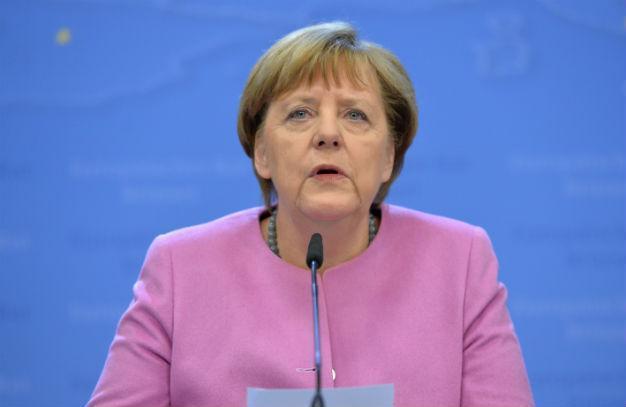No EU ‘plan B’ to talks with Turkey on migrants
FRANKFURT – Reuters

AA photo
German Chancellor Angela Merkel on Feb. 28 said there was no “Plan B” for the European Union regarding a deal reached with Turkey to reduce the flow of migrants, hours after she and Turkish Prime Minister Ahmet Davutoğlu discussed the issue by phone.
“Sometimes, I also despair. Some things go too slow. There are many conflicting interests in Europe,” Merkel told state broadcaster ARD on Feb. 28. “But it is my damn duty to do everything I can so that Europe finds a collective way.”
Merkel said there was no “Plan B” for her aim of reducing the flow of migrants through cooperation with Turkey, efforts she said could unravel were Germany to cap the number of refugees it accepts.
Merkel spelled out her motivation to keep Germany’s borders open without limits on refugees, a goal many in her own country and coalition government openly disagree with.
“There is so much violence and hardship on our doorstep,” she said. “What’s right for Germany in the long term? There, I think it is to keep Europe together and to show humanity.”
During a telephone conversation late on Feb. 28, Merkel and Davutoğlu expressed pleasure over ongoing cooperation against illegal migration among Turkey, Germany and the EU authorities, sources from the Turkish Prime Minister’s Office told state-run Anadolu Agency.
The telephone conversation was initiated by Merkel, said the same sources, speaking on condition of anonymity.
Davutoğlu and Merkel agreed to strengthen their ongoing cooperation, while both underlined the importance of activities planned by a NATO naval mission in the Aegean Sea to help fight people-trafficking, the sources said.
An upcoming special summit of EU leaders and Turkey on the migration crisis scheduled for March 7 will also offer an opportunity to deal with the progress in relations with full membership candidate Turkey and the EU, the two leaders stated, according to the sources. An EU migration summit will also take place on March 18 and 19.
After many failed attempts, the two meetings look like the final chance to agree on a joint response before warmer weather encourages more arrivals across the Mediterranean. But Merkel said she would fight on for a European solution even were the March 7 meeting to fall short.
Turkey and the EU signed a deal in November 2015 under which Ankara agreed to curb the number of refugees crossing to Greece in return for 3 billion euros ($3.2 billion) in aid and the acceleration of its EU membership bid.
German Foreign Minister Frank-Walter Steinmeier told Greek daily Ta Nea in an interview on Feb. 29 that the EU countries must work together to deal with the migrant crisis troubling the bloc and avoid blaming each other.
“We must fight for Europe. We must stop blaming each other. On the contrary, we must unite forces and work together for a European solution to the refugee crisis. This is the only way for Europe to emerge stronger from this crisis,” Steinmeier was quoted as saying by Reuters.
Austria, the last stop on the way to Germany for hundreds of thousands of migrants, recently imposed restrictions on its borders, setting off a domino effect in Europe in limiting the flow of people, and leaving hundreds stranded in Greece.
Merkel dismissed such a “rigid limit,” saying: “There is no point in believing that I can solve the problem through the unilateral closure of borders.”
Thousands of refugees were stuck on Greece’s border with Macedonia, overflowing from a packed camp into the surrounding fields, as they waited for Macedonian authorities to let them continue their trek through the Balkans.
Police say about 6,500 people were at or near the Idomeni border crossing on Feb. 29, with another 500 moved to a hastily erected camp on a small concrete landing strip some 20 kilometers away, the Associated Press reported.
Macedonian authorities let 300 Syrians and Iraqis in between a few hours during midnight Feb. 29, after which the crossing closed. Macedonia has said it will only allow in as many people as Serbia, the next country north on the Balkan migrant corridor, accepts.
On Feb. 28, stranded migrants staged a protest at the border, sitting and lying with their children across the train tracks. Some held up handwritten posters that read “Open the borders, no food” and “We are humans, not animals.”
